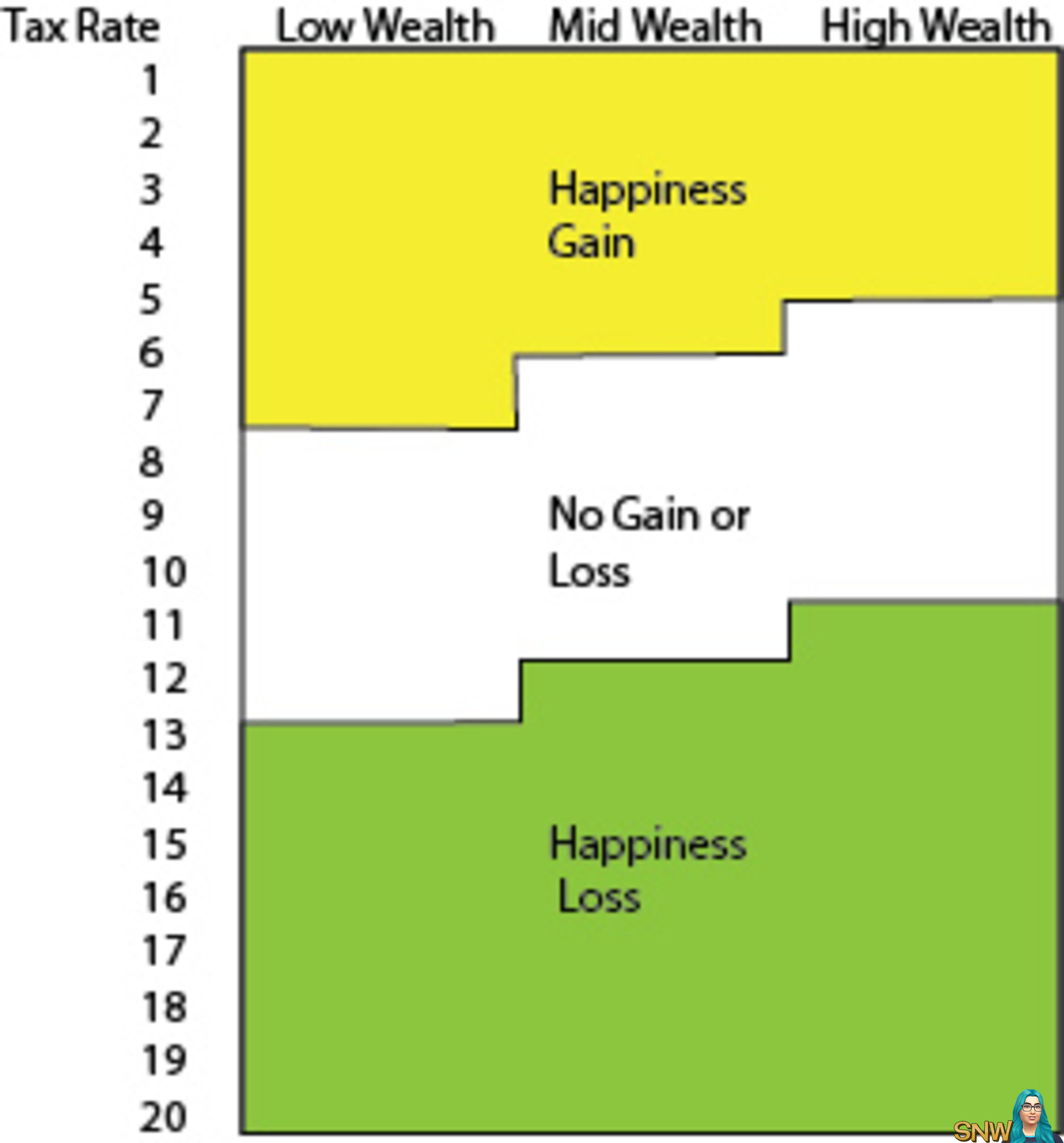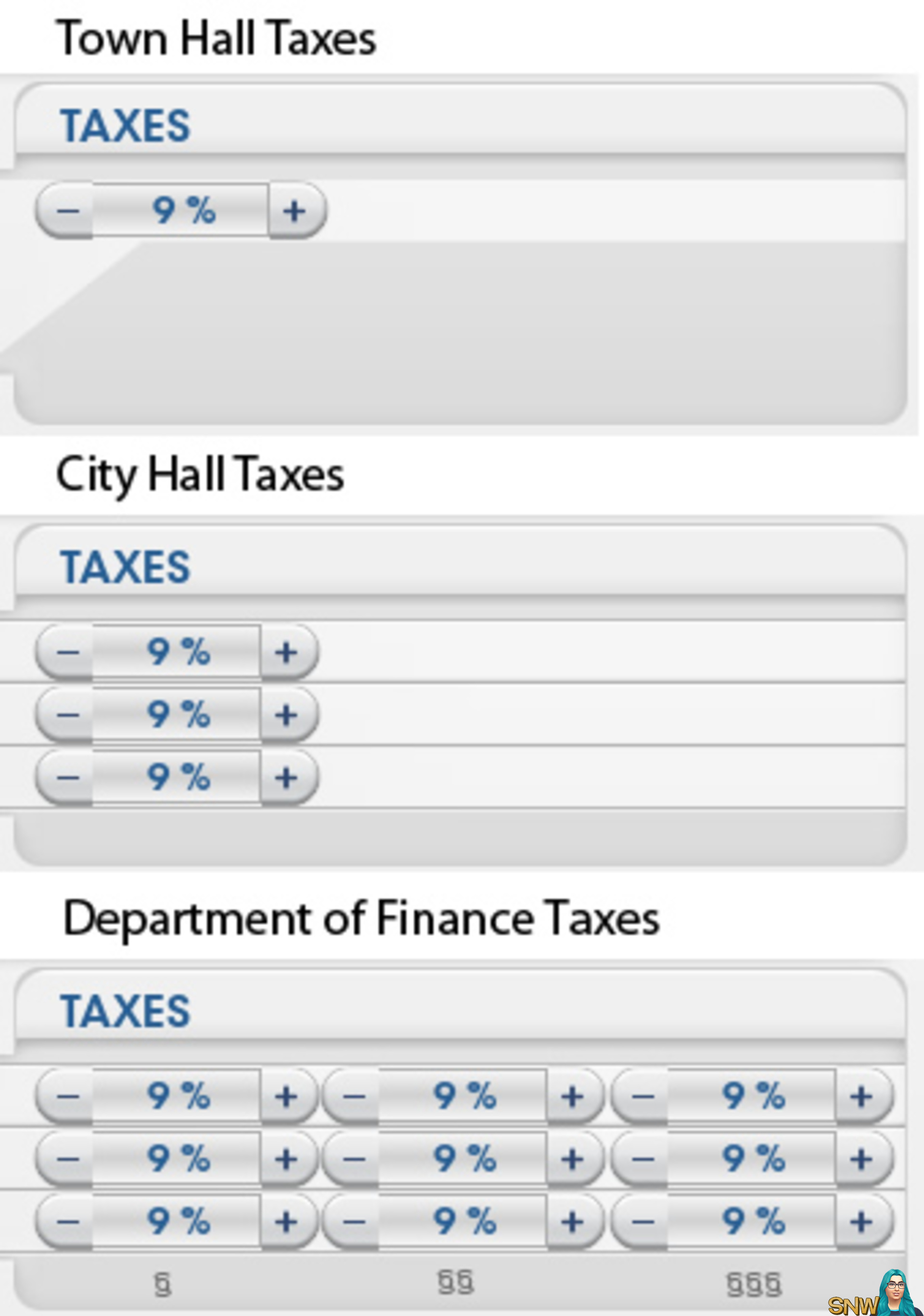Producer Blogs: SimCity Taxes


Is your city in debt? Do you need a Simulus package? Are you frustrated by clueless advisors? Sounds like you need some advice from the people of Maxis Taxes. Our tax experts – namely me, Balance Designer Ross Treyz – are here to help you find a solution to your financial troubles.
Before we talk about how to use taxes, let’s talk about the different tax controls available to mayors. The tax controls available to each mayor depend on their city hall. Here is what tax controls look like for different mayors and their city halls:
As you can see, the most control is available to mayors who have a City Hall with the Department of Finance. While the techniques we will talk about here are useful for any mayor, they are most useful to those who have a City Hall with the Department of Finance.
OK, now let’s talk about taxes. Every hour when your hourly income is calculated, one of three things happens depending on your tax rate: 1) If your taxes are high, there is a chance that your Sims will lose happiness. 2) If your taxes are low, there is a chance that your Sims will gain happiness. And 3) If your taxes are in the middle, no extra happiness is gained or lost. Each wealth level is affected by different tax rates:
Taxes are a useful tool for any mayor, and understanding how they work will allow you to use them in ways you may not have thought about. We are going to discuss three ways to use taxes: wealth, growth, and exclusion:
Wealth – this is the technique of raising your taxes to the point where you maximize your hourly income, without losing your residents. You can do this when you are happy with the density of your city, or you just need a lot of money. The key here is to raise your taxes to the point that your Sims “break even” on happiness, but not so high that they move out. The “break even” point depends on how well you are meeting the needs of your citizens. For example, if you have a residential district that has all its needs met (shopping, jobs, police, fire and health service) the Sims will gain happiness. Eventually the buildings will go up in density. If you raise your taxes slightly, your buildings won’t go up in density, but they also won’t go abandoned, and you will be making more money with the extra taxes.
Growth – when you want your city to grow and you don’t care much about earning money, use this technique. In order to promote growth, lower your taxes until you are making little, none, or negative income. Though this may sound simple, there are some details that should be pointed out. Remember, with City Hall, you can set the tax rate for Residential, Commercial, and Industrial separately and with the Department of Finance you can tax each wealth level of RCI individually. So, when promoting growth, you can choose to promote growth in specific wealth levels of R, C or I by lowering their taxes.
Exclusion – at a tax rate of 20%, Sims of that type will not move in. Smart mayors will use this to their advantage. If you want to exclude a particular wealth level from your city, simply raise their tax level to maximum.
Taxes are one of the tools in the arsenal of a financially savvy mayor. There are other tools for you to use: loans and gifts, as well as managing services and other buildings that you can turn on or off. Hopefully some of the techniques covered here will help to manage cities in financial trouble or propel an already successful city all the way to the top.
- Balance Designer Ross Treyz












